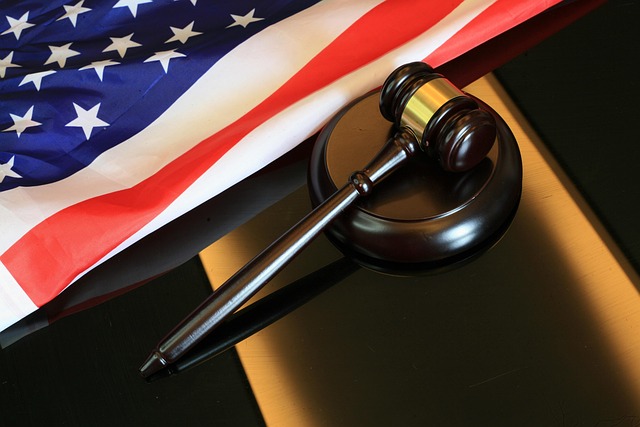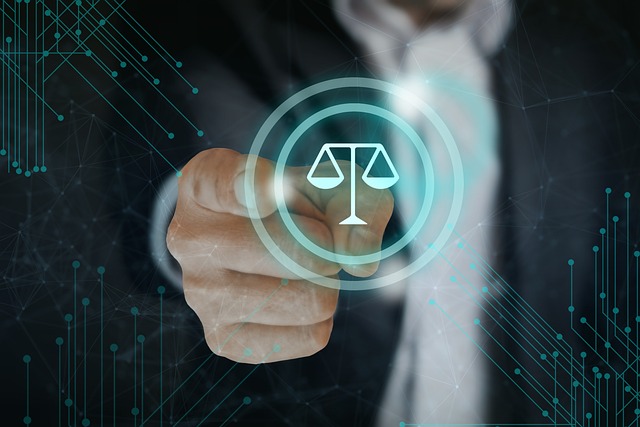Uncovering Legal Grounds for RF Appeals: Navigating Criminal Cases

RF Regulatory Agency investigations uphold RF standards, examining evidence under legal principles……..
Welcome to an in-depth exploration of the intricate world of legal grounds for criminal appeal, a cornerstone of criminal justice systems worldwide. This article aims to demystify this critical aspect of law, shedding light on its historical evolution, global impact, and future prospects. By delving into these realms, we will equip readers with a comprehensive understanding of the mechanisms that safeguard fairness and ensure the integrity of criminal proceedings.
Definition: Legal grounds for criminal appeal refer to the specific legal reasons or errors that a defendant or their legal representative can cite to challenge a conviction or sentence after it has been rendered by a trial court. These grounds are rooted in statutory provisions and constitutional guarantees, ensuring that individuals have a means to seek redress if they believe their rights have been infringed upon during the criminal justice process.
Core Components: The concept encompasses several key elements:
Errors of Law: This includes misinterpretations or misapplications of laws by the trial court, such as incorrect instructions to the jury or erroneous legal conclusions.
Procedural Irregularities: These are procedural flaws that undermine the fairness of the trial, like violations of due process rights, improper admission of evidence, or bias on the part of the judge.
Insufficient Evidence: Defendants can appeal if they believe the prosecution did not present compelling evidence to support the conviction, raising doubts about their guilt.
Unreasonable Sentences: In some jurisdictions, defendants may challenge sentences that are deemed excessively harsh or not in line with established sentencing guidelines.
Historical Context: The concept of legal grounds for appeal has evolved over centuries, reflecting societal values and advancements in legal philosophy. From ancient Roman law to the common law systems of Europe and North America, the right to appeal has been a cornerstone of fair trial principles. Over time, as criminal justice systems became more complex, so too did the list of potential grounds for appeal, reflecting a global movement towards ensuring individual rights and procedural fairness.
The universal recognition of legal grounds for criminal appeal is evident in various forms across different countries and legal systems. Despite this unity, there are notable variations in the specific grounds allowed, procedures, and their application, shaping a diverse global landscape.
| Region | Key Trends & Observations |
|---|---|
| Common Law Countries (UK, US, Canada) | Tend to have extensive lists of appealable errors, emphasizing procedural fairness and individual rights. The U.S., for instance, allows appeals based on constitutional issues, evidentiary errors, and judicial bias. |
| Civil Law Countries (France, Germany, Japan) | Often focus on ensuring the correct application of laws and procedure. Appeals may primarily revolve around legal interpretations and the proportionality of sentences. |
| International Courts (ICC, ECHR) | Play a pivotal role in setting global standards. The European Court of Human Rights (ECHR) has influenced many countries to expand their appeal rights, while the International Criminal Court (ICC) sets benchmarks for international criminal justice. |
The legal grounds for criminal appeal have significant economic implications, particularly in terms of market dynamics, investment, and resource allocation within legal systems.
Legal Expenses: Defendants who successfully navigate these grounds can potentially reduce their financial burden by overturning unfair convictions or sentences. This saves them from lengthy prison terms and associated costs.
Investor Confidence: A robust appeals process signals a fair and transparent legal system, enhancing investor confidence. This is particularly crucial in jurisdictions where foreign direct investment plays a vital role in economic growth.
Resource Allocation: The allocation of resources within the legal system can be influenced by appeal trends. High volumes of successful appeals may prompt governments to reallocate funds for improved trial procedures or legal aid.
Technology has revolutionized various aspects of criminal justice, and legal grounds for appeal are no exception. The digital age brings both opportunities and challenges:
Online Case Law Databases: Easy access to case law and legal research tools enables lawyers and defendants to navigate complex appeal processes more efficiently.
E-Filing and Digital Evidence: The shift towards electronic filing streamlines the submission of appeals, while digital evidence presentation can enhance transparency and accessibility during appeals hearings.
AI-Assisted Legal Research: Artificial intelligence applications assist in analyzing large volumes of legal data, aiding lawyers in identifying relevant grounds for appeal and preparing robust arguments.
Challenges: However, technological advancements also pose challenges:
Cybersecurity Concerns: As more legal processes go digital, the risk of cyberattacks increases, potentially compromising sensitive case information.
Digital Divide: Access to technology and online resources may not be equitable, creating barriers for defendants from disadvantaged backgrounds.
Key policies and regulations govern the legal grounds for criminal appeal, ensuring a structured and fair process. These frameworks vary across jurisdictions but share common goals of protecting individual rights and maintaining judicial integrity.
Constitutional Guarantees: Many countries have constitutional provisions that guarantee the right to a fair trial and appeal, forming the foundation for specific legal grounds.
Criminal Procedure Codes: These codes detail the step-by-step procedures for criminal trials and appeals, specifying time limits, documentation requirements, and review processes.
Sentencing Guidelines: In some jurisdictions, sentencing guidelines provide a framework for judges, ensuring consistency and reducing arbitrariness in sentencing.
Despite its critical role, the legal grounds for criminal appeal face several challenges and criticisms that warrant attention:
Complexity: The intricate nature of these grounds can be a barrier to defendants who lack legal representation, potentially leading to procedural defaults. Simplifying language and providing accessible resources can address this issue.
Backlogs and Delays: Overburdened courts often result in lengthy appeals processes, undermining the purpose of ensuring timely justice. Implementing efficient case management systems and hiring additional judges can help alleviate this problem.
Inconsistent Application: There may be disparities in how different courts interpret and apply legal grounds, leading to inconsistencies in outcomes. Standardized training programs for judges and clear guidelines can mitigate these variations.
Proposed Solutions: To overcome these challenges, the following strategies are recommended:
Legal Aid Initiatives: Enhancing access to legal aid ensures that defendants from all socioeconomic backgrounds can navigate the appeals process effectively.
Court Efficiency Measures: Implementing technology, such as case management systems, and increasing judicial resources can expedite appeals.
Judicial Training and Guidelines: Standardized training programs and clear, consistent guidelines for judges can ensure fair and equitable application of legal grounds across jurisdictions.
In this landmark case, the defendant, Mr. Smith, was convicted of fraud but believed the evidence against him was circumstantial. He appealed, citing insufficient evidence and judicial bias. The appeal court agreed, ruling that the trial judge had improperly influenced the jury’s decision. This case highlights the importance of impartiality and the role of appeals in correcting procedural errors.
A highly publicized case where a defendant successfully challenged their sentence on grounds of excessive brutality, citing a recent amendment to the state’s sentencing guidelines. This victory underscored the power of legal grounds for appeal in ensuring proportional and just sentencing.
The future of legal grounds for criminal appeal is poised for exciting developments, driven by technological advancements, evolving societal values, and global trends.
Artificial Intelligence Integration: AI is expected to play a more significant role in legal research and case prediction, aiding both lawyers and judges. However, ethical considerations regarding its use must be addressed.
Digital Transparency and Blockchain: Implementing blockchain technology for secure digital records can enhance transparency and streamline the appeals process.
Global Harmonization: With increasing international cooperation in criminal justice, there may be a move towards harmonizing legal grounds and procedures to facilitate cross-border appeals.
The legal grounds for criminal appeal are a cornerstone of modern criminal justice systems, ensuring that individuals have a means to seek redress for perceived wrongs. This article has explored the historical foundations, global trends, economic implications, technological advancements, and policy frameworks that shape this critical aspect of law. By addressing challenges and highlighting successful case studies, we have demonstrated the ongoing evolution of these grounds in response to societal changes.
As we look ahead, the future holds both opportunities and complexities. Embracing technological innovations while navigating ethical considerations will be essential to ensuring that legal grounds for criminal appeal remain a robust and fair mechanism for seeking justice.
Q: What happens if a defendant’s appeal is successful?
A: If an appeal is successful, the conviction or sentence may be overturned, leading to potential release from custody or a retrial/resentencing.
Q: Can anyone appeal a criminal conviction?
A: While most defendants can appeal, eligibility depends on factors like whether the appeal was timely filed and the jurisdiction’s specific rules. Legal representation is often beneficial.
Q: How long does an appeals process typically take?
A: Duration varies but generally ranges from several months to over a year, depending on complexity, docket volume, and procedural steps involved.
Q: Are legal grounds for appeal the same worldwide?
A: No, they vary significantly across jurisdictions, reflecting different legal systems and cultural contexts. However, many share common principles of fairness and due process.

RF Regulatory Agency investigations uphold RF standards, examining evidence under legal principles……..

Criminal appeals balance justice with legal fairness, allowing defendants to challenge verdicts base…….

Corporate Crime Investigations demand meticulous strategies to uncover fraud and violations. The Leg…….

Finance crime probes are thorough legal investigations targeting financial offenses like fraud and m…….

Consumer protection laws guard against predatory business practices, ensuring product quality, adver…….

Healthcare compliance experts navigate complex legal landscape, ensuring organizations operate withi…….

Environmental Crime Trials, focusing on ecological damage, navigate a strict legal framework centere…….

C-Level Investigations demand meticulous scrutiny of top executives facing misconduct allegations, s…….

RF Regulatory Agency investigations require strategic legal compliance. Promptly addressing deviatio…….

Healthcare Law Firms are essential experts in navigating complex medical laws, ensuring compliance a…….